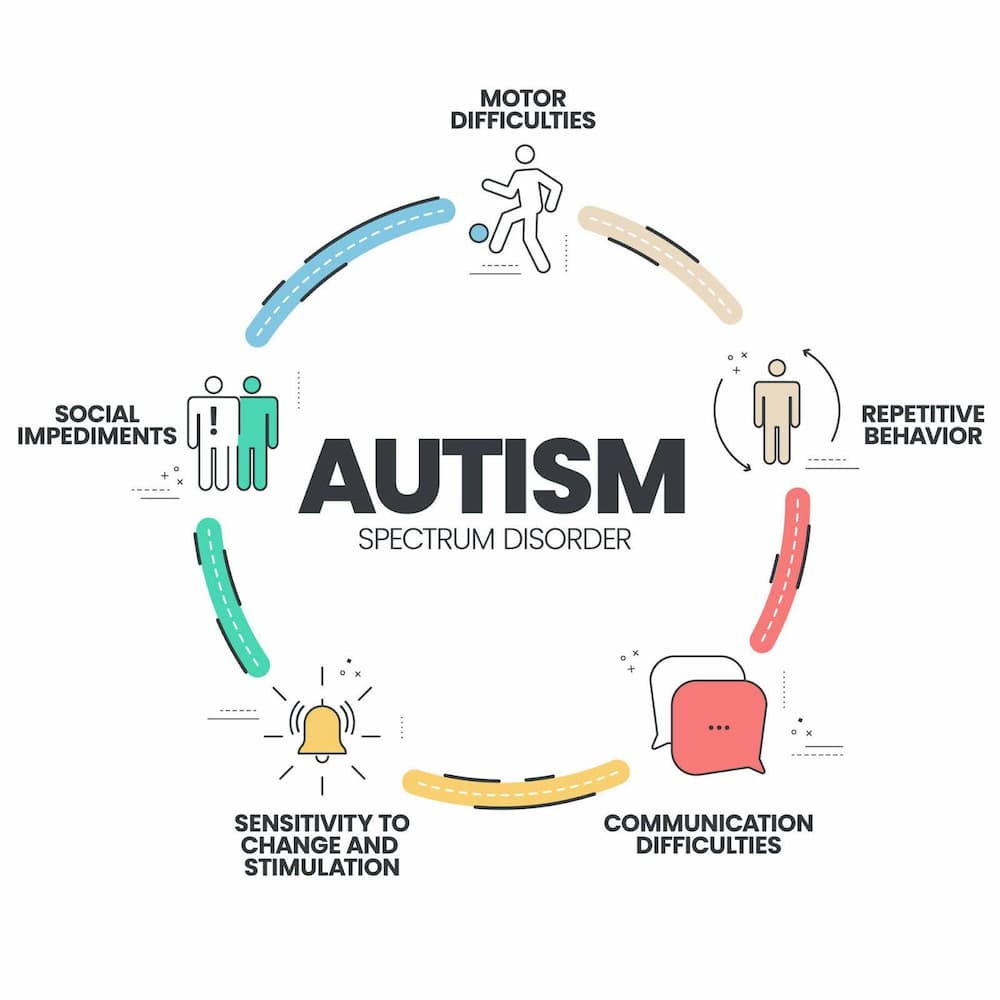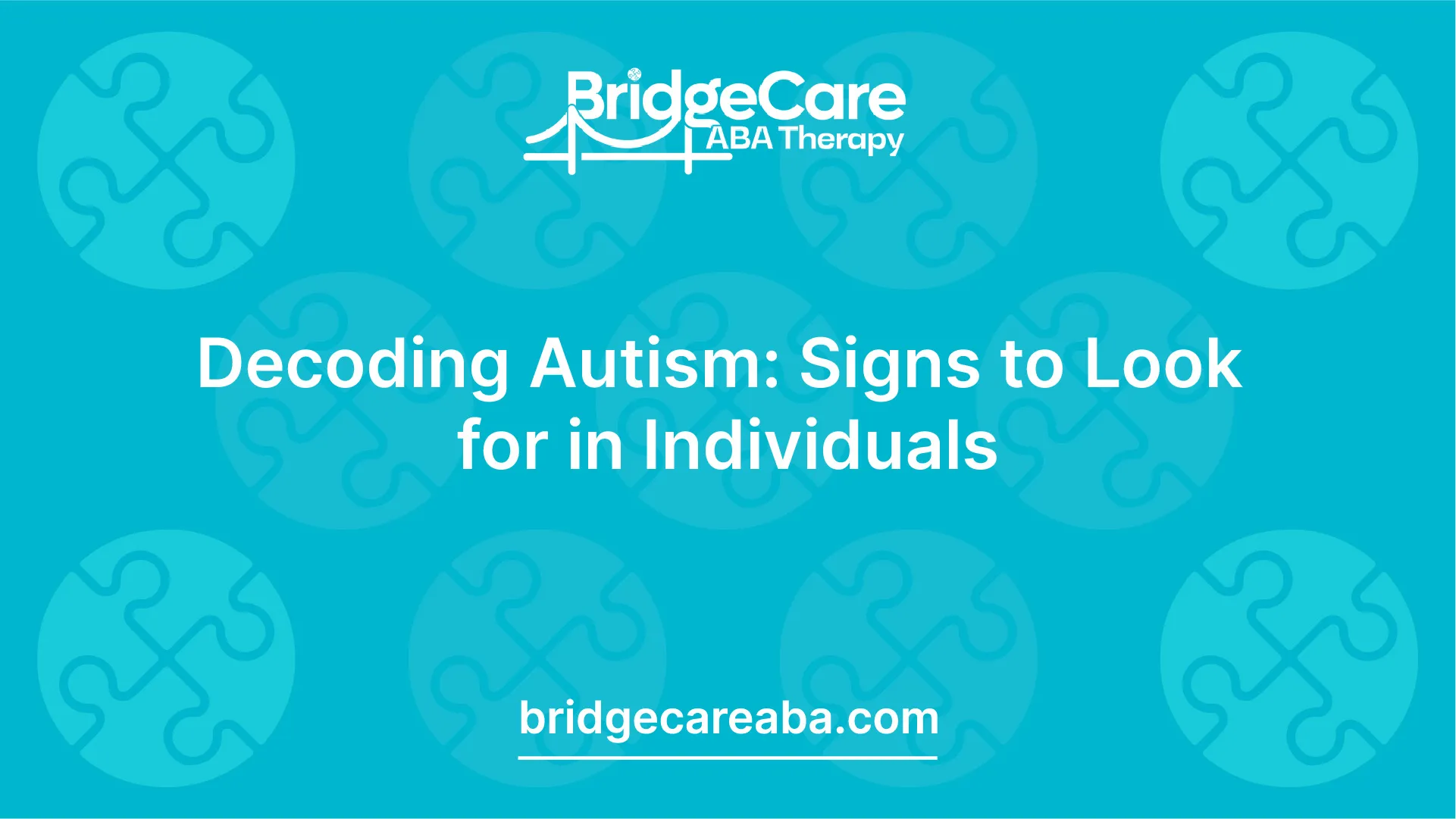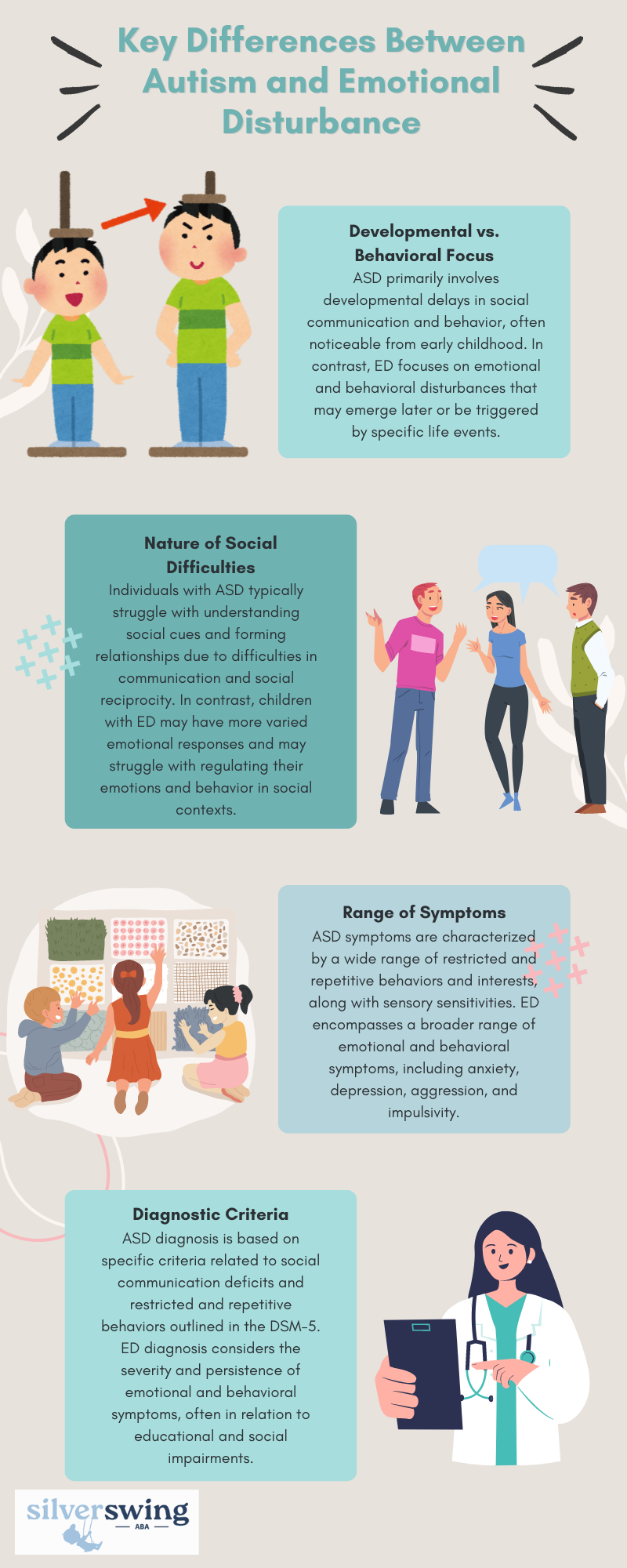How Autism Spectrum Therapies overcome challenges in expression
How Autism Spectrum Therapies overcome challenges in expression
Blog Article
Checking Out Effective Methods for Sustaining Individuals With Behavioral Autism
Supporting individuals with behavioral autism requires a nuanced understanding of their one-of-a-kind needs. What certain techniques can you execute to ensure these people prosper?
Understanding Behavioral Autism: Secret Qualities and Challenges
When you begin to understand behavior autism, you'll see a number of crucial features and difficulties that specify the experience for people. Lots of people with behavioral autism typically have problem with communication, making it tough for them to express their feelings or requirements efficiently. You may observe repeated actions, such as hand-flapping or rocking, which serve as coping devices for managing anxiety or sensory overload. Social interactions may be challenging; people might locate it tough to check out social signs, leading to misconceptions in connections.
It's vital to acknowledge that each person is unique, and their experiences may differ. Recognizing these characteristics allows you to approach support with empathy, fostering a favorable link that can boost their well-being and motivate development.
The Value of Personalized Interventions
When it comes to supporting individuals with behavior autism, individualized treatments are important. By developing customized treatment strategies that concentrate on individual staminas, you can considerably improve their development. Working together with assistance teams guarantees everybody is lined up in giving the most effective treatment feasible.
Tailored Intervention Plans
Producing tailored intervention plans is crucial for effectively supporting individuals with behavioral autism, as each individual's requirements, challenges, and strengths vary significantly. Begin by gathering detailed info about the person, including their preferences, activates, and previous experiences. This adaptability not just cultivates interaction yet additionally promotes a sense of possession and empowerment for the person.
Private Strengths Assessment
An individual toughness assessment is important for creating individualized treatments for people with behavioral autism. By concentrating on everyone's special capabilities, you can produce approaches that resonate with their abilities and interests. This method not just boosts engagement however additionally improves confidence.
When you recognize strengths, like remarkable memory or artistic skill, you can tailor treatments that take advantage of these locations. This not only makes finding out more effective yet additionally promotes a sense of achievement. Remember, every person has one-of-a-kind abilities; acknowledging them encourages you to craft significant experiences.
Integrating these toughness into everyday routines and healing techniques can cause boosted outcomes. Inevitably, focusing on strengths guarantees that interventions are not simply efficient yet likewise improving for the person.
Collaborative Assistance Teams
Acknowledging individual strengths establishes the phase for developing collective support groups that concentrate on tailored treatments. By combining experts, family members, and the people themselves, you produce a helpful network that tailors strategies to fulfill certain needs. Each employee contributes unique understandings, making sure a complete technique that deals with behavior difficulties successfully.
This adaptability is necessary, as it helps every person involved keep aligned with the individual's objectives and preferences. Furthermore, involving in this team-based method equips people with autism, promoting their self-advocacy and confidence.
Evidence-Based Communication Methods

When functioning with people on the autism range, using evidence-based interaction techniques can considerably improve their capacity to attach and express themselves. Using visual supports, like image schedules or communication boards, helps clarify expectations and fosters independence. Simplifying language and using concrete terms enables better understanding, reducing irritation.
Including social tales can prepare people for different circumstances, showing them proper actions and habits. Encouraging the usage of assistive innovation, such as speech-generating gadgets, encourages people to interact better. Furthermore, employing consistent regimens and predictable environments can offer a complacency, making interaction more effective.
Bear in mind to be individual and provide time to process your words. Engaging in energetic listening, where you mirror their thoughts and sensations, can strengthen your link. By carrying out these methods, you'll create a much more supportive interaction atmosphere for people with autism.
Producing Supportive Atmospheres
Creating encouraging environments for people with behavioral autism begins with executing organized regimens that offer predictability and safety. You'll likewise want to create sensory-friendly rooms that deal with individual needs, lowering frustrating stimuli. In addition, using favorable reinforcement methods can urge preferred actions and foster a feeling of achievement.
Structured Routine Execution
Establishing a structured routine can significantly improve the atmosphere for individuals with behavioral autism. By creating a consistent schedule, you provide predictability, which can reduce anxiety and complication. A well-structured setting promotes self-reliance and confidence, supporting their overall development.
Sensory-Friendly Spaces Design

Positive Reinforcement Methods
When you include favorable support strategies right into your strategy, you can greatly enhance the discovering and behavioral results for individuals with autism. This includes acknowledging and awarding desired behaviors, which encourages repeating of those behaviors. Begin by determining what encourages the specific-- be it applaud, symbols, or special tasks. Enhance favorable activities promptly to produce a clear connection between actions and incentive. Consistency is essential; assurance that everybody included in their treatment applies the same support strategies. You can also gradually raise the intricacy of tasks as individuals come to be much more comfortable, enhancing their development. By creating an environment where favorable habits are acknowledged, you cultivate self-confidence and a sense of success, eventually supporting their growth and health.
Collaborative Strategies: Dealing With Family Members and Professionals

Entailing relative in decision-making encourages them and boosts their capability to support their loved ones. Specialists, consisting of therapists and instructors, can give beneficial resources click here for info and training that better assist households.
You should likewise value each party's point of view, identifying that families know their kid best while experts bring specialized expertise. By crafting personalized plans with each other, you create a tailored strategy visite site that deals with special needs. Autism Behavioral Therapy. Inevitably, this collaboration not just profits the individual with autism but additionally enhances the support network surrounding them, making it extra reliable and cohesive
Integrating Social Abilities Educating
Building on the solid partnerships formed in between families and specialists, incorporating social abilities training can considerably enhance the assistance supplied to individuals with behavior autism. This training helps you educate important communication abilities, such as initiating discussions, comprehending non-verbal cues, and reacting properly in social situations.
By utilizing organized activities, role-playing, and real-life situations, you create chances for practice in a safe setting. Motivate people to take part in group setups where they can engage with peers, cultivating friendships and boosting their comfort in social contexts.
It is very important to customize the training to each individual's distinct toughness and difficulties, ensuring they feel positive and qualified. Consistently integrating responses from both families and experts can fine-tune these approaches, making social skills training a lot more reliable. Ultimately, you're equipping people with the tools they need to browse social interactions successfully and build meaningful connections.
Keeping Track Of Progression and Adjusting Methods
As you execute social abilities training, it's vital to monitor progress and readjust approaches as necessary. Monitor behaviors, keeping in mind improvements and obstacles. Use tools like charts or checklists to imagine growth and look at here determine patterns. Regularly review your observations to evaluate what's working and what isn't.
Engage the individual in reflection, asking exactly how they feel about their progress and what obstacles they encounter. This comments is vital for tailoring your method. Don't wait to change them. if specific strategies aren't generating results.
Incorporate a selection of methods to maintain the training vibrant and engaging. Team up with various other caregivers or professionals for fresh viewpoints and insights. Remember, adaptability is vital; what jobs today may not work tomorrow. By remaining alert and responsive, you develop an atmosphere that promotes growth and advancement. Constantly celebrate success, regardless of just how small, to urge continued initiative and enthusiasm.
Frequently Asked Concerns
What Are the Usual Misconceptions About Behavioral Autism?
You may assume behavior autism only impacts interaction, but it includes far more. Numerous believe all people with autism act the very same, neglecting their one-of-a-kind characteristics and capabilities. It's necessary to comprehend everyone's distinctions.
How Can Innovation Assist in Sustaining People With Behavioral Autism?
Innovation can improve interaction, giving tools like apps for social skills and behavior tracking. You can utilize online truth for immersive experiences, and wearable gadgets can keep an eye on emotions, aiding you sustain people effectively.
What Role Do Sensory Processing Issues Play in Behavioral Autism?
Sensory processing issues can considerably influence actions. You could see that frustrating sensory input brings about anxiousness or disasters. Recognizing these obstacles aids you develop an extra encouraging environment for individuals experiencing sensory overload.
Are There Particular Nutritional Referrals for Individuals With Behavioral Autism?
Yes, specific nutritional referrals can assist. You may take into consideration a gluten-free or casein-free diet plan, which some discover helpful (Aba Therapist). Always speak with a healthcare specialist prior to making significant adjustments to assure it's ideal for you or your loved ones
Exactly How Can Peers Be Enlightened to Support People With Behavior Autism?
To educate peers, you can arrange workshops, create insightful materials, and urge open discussions. Involving activities, like role-playing circumstances, help them comprehend challenges dealt with by individuals, promoting empathy and reliable support within the neighborhood.
Exploring Reliable Approaches for Sustaining Individuals With Behavior Autism.
Producing tailored treatment plans is important for properly supporting people with behavior autism, as each person's demands, strengths, and obstacles vary significantly.A specific strengths assessment is necessary for creating customized treatments for people with behavior autism.To sustain people with behavior autism, making sensory-friendly spaces is important, as it can considerably boost their convenience and emphasis.Joint approaches are vital for sustaining individuals with behavioral autism, as they foster a strong partnership between experts and households.
Report this page